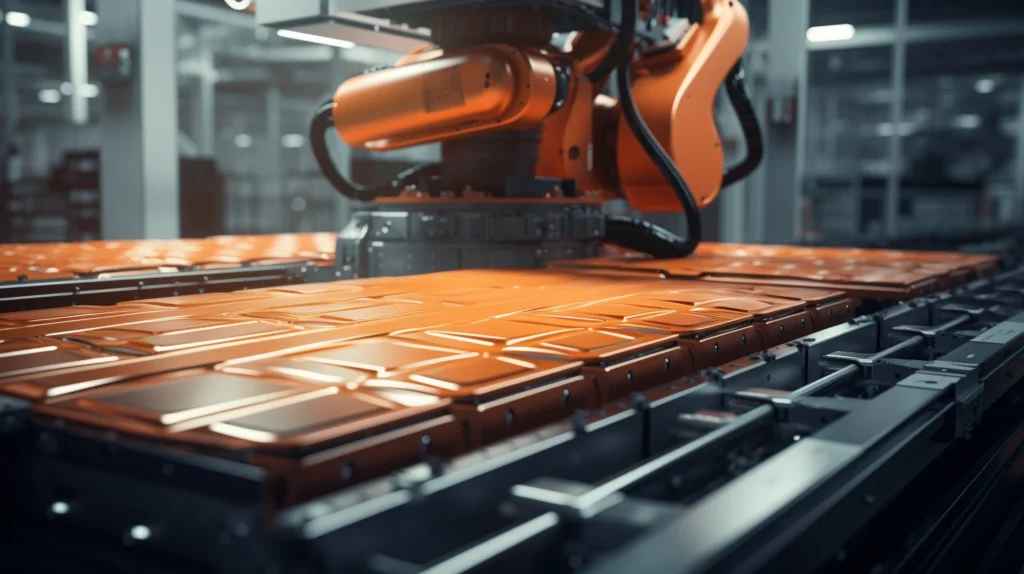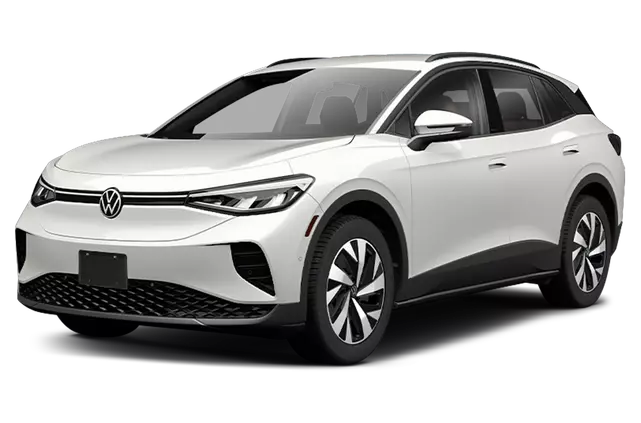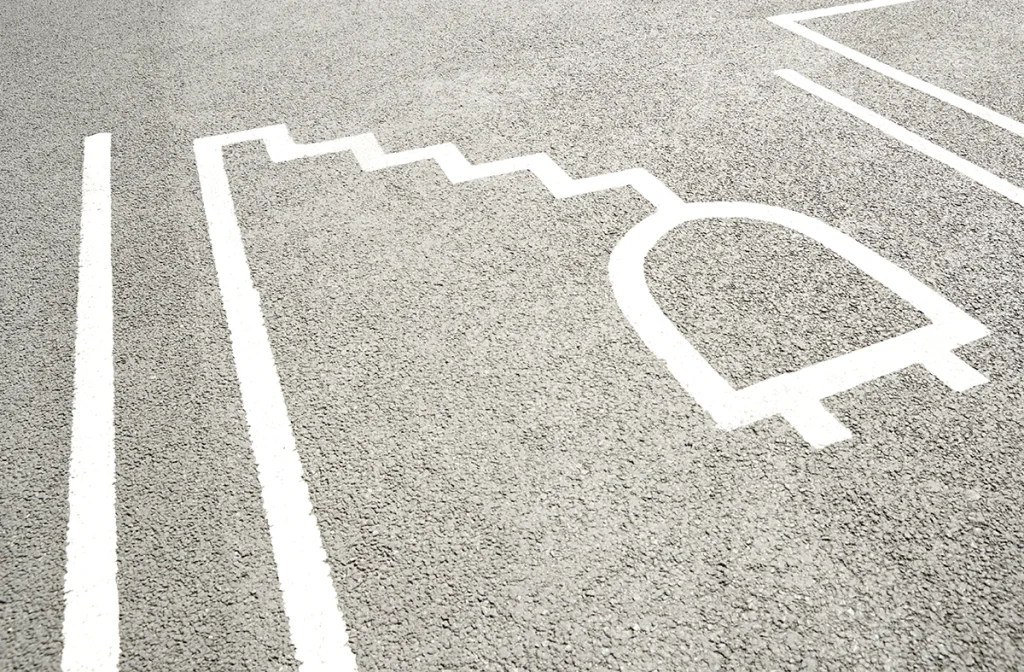An electric vehicle battery, also known as a traction battery, serves as the power source for the electric motor in battery electric vehicles (BEVs) and hybrid electric vehicles (HEVs). The prevalence of lithium-ion batteries, often dubbed “star mineral,” “white gold,” and “21st-century oil,” underscores their pivotal role in revolutionizing the battery industry.
The automotive industry is undergoing a transformative shift towards greener and more sustainable transportation options. With electric vehicles (EVs) gaining popularity, the demand for high-quality vehicle batteries has reached unprecedented levels.

Image source: bioage
While concerted efforts by the United States and European nations aim to lead the EV battery manufacturing domain, the prevailing reality is that the top 10 companies in this sector hail from Asia. Presently, Chinese enterprises command the lion’s share, contributing to approximately 56% of the EV battery market. Korean companies follow with a substantial 26%, while Japanese counterparts make up the remaining segment
Now let’s dive into EV battery manufacturing and explore the top five ev battery manufacturers based on their market share.
CATL (Contemporary Amperex Technology Co. Ltd.)
Hailing from Ningde in China, CATL has cemented its position as a global leader in the electric vehicle battery manufacturing sector. This company’s ascent to the top of the market share charts has been driven by its unwavering commitment to research, innovation, and strategic partnerships.
Established in 2011, CATL wasted no time securing strategic partnerships that have propelled its success thus far. One notable collaboration was formed with BMW early on, leading to joint ventures with prominent Chinese automakers, including SAIC Motors, Dongfeng Motors, GAC Group, Geely Auto Group, and FAW Group. These alliances have helped CATL accumulate shares worth around CNY1.3 trillion, showcasing their commitment towards expanding their presence across different sectors within the automotive industry.
Notably, CATL is known for producing both lithium-ion and solid-state batteries. Their extensive product portfolio has attracted partnerships with renowned automobile manufacturers such as Peugeot, Hyundai, Honda, BMW, Toyota, Volkswagen, and Volvo. Even Tesla relies on CATL-manufactured batteries for its Shanghai-based assembly line.
With an impressive market expansion from 2% in 2021 to 32% in 2022 and further up to 34%, CATL dominates one-third of the EV market. This Chinese powerhouse has emerged as a solid player in the industry, with its influence continuing to grow.
LG Energy Solution
South Korea’s LG Energy Solution has made significant strides in the vehicle battery market, earning a well-deserved spot among the top five manufacturers. As a subsidiary of LG Chem, the company’s commitment to safety, energy density, and performance has garnered partnerships with major automakers like General Motors and Ford. This strategic approach has allowed LG Energy Solution to secure a considerable market share.
One of the most compelling aspects of LG Energy Solution’s journey is its investment in solid-state battery technology. By pushing the limits of energy density, charging speeds, and safety, the company is actively shaping the future of electric mobility. Their global influence and focus on sustainability are poised to keep them at the forefront of the market share race.
While slightly lower than the previous year, LG Energy Solutions controls over 14% of the EV market. This highlights their resilience and ability to withstand setbacks while remaining competitive within this rapidly evolving industry.
BYD (Build Your Dreams)
In a remarkable shift, Chinese enterprise BYD has overtaken Panasonic to secure the third spot among EV battery manufacturers. This achievement is attributed to BYD doubling its market shares within a year. With 11 manufacturing plants across China, they can produce 200kWh of batteries annually.
One noteworthy product developed by BYD is its “blade battery.” Unlike traditional lithium-ion batteries that utilize cobalt or nickel at higher costs for greater range, the blade battery features a lithium iron phosphate (LFP) composition. This design promises improved thermal stability and stronger impact resistance, making it an attractive option for customers seeking reliable and safe energy storage solutions.
Excitingly, local news sources have reported that BYD will soon be supplying batteries to Tesla—an announcement confirmed by senior executives at BYD on June 8th this year. During an interview with CGTN (a Chinese state-owned news agency), Lian Yubo stated, “We are now good friends with Elon Musk because we are preparing to supply batteries to Tesla very soon.” It’s worth noting that BYD has already been supplying batteries to other automobile companies like Toyota for quite some time.
BYD’s prominence in the electric vehicle sector has been bolstered by its electric buses and passenger vehicles, which have garnered international recognition. Their commitment to eco-friendly mobility solutions and continuous research and development have propelled them into the top ranks of the market share hierarchy.
Panasonic
With a 10% market share, Panasonic closely trails behind BYD in the Electric vehicle battery manufacturing industry. In early 2015, Panasonic held a significant position as the sole supplier of batteries to Tesla—a partnership that played a crucial role in enabling Tesla’s production expansion.
Panasonic is actively working alongside Tesla to kickstart production of their new 4680 battery cell format. This upcoming innovation is expected to bring about substantial capacity improvements compared to previous models. With plans for production set for next year, Panasonic aims to contribute significantly towards advancing the capabilities and performance of electric vehicles.
Its expertise lies in its ability to mass-produce high-capacity battery cells, catering to the exponential growth of the EV market. With relentless dedication to innovation, Panasonic continues to refine its battery technology, paving the way for increased adoption of electric vehicles.
As governments worldwide incentivize electric mobility, Panasonic’s contribution to this paradigm shift positions them among the top players in the market share competition.
SK Innovation
Hailing from South Korea, the company has made substantial strides in the electric vehicle (EV) sector, solidifying its position as a key contender. SK Innovation is recognized for its diverse portfolio of battery technologies, catering to various EV segments. Their innovative NCM (Nickel-Cobalt-Manganese) battery chemistry has garnered attention for its balance between energy density and safety.
Currently ranked as the fifth-largest EV battery manufacturer, SK Innovation boasts a manufacturing capacity of 13.2 GWh. Their impressive sales figures further solidify their standing, with South Korea’s SNE research reporting $13.2 billion in sales for SK Innovation. Notably, SK Innovation has surpassed major competitor Samsung, who previously held the fifth rank but has gradually lost ground.
With ambitious goals in mind, SK Innovation’s founder envisions his company becoming the largest electric vehicle (EV) battery manufacturer by 2030. In an interview, he confidently states, “We will definitely be on par with the number one or be the world’s leading battery maker.” This determination highlights their commitment to securing a prominent position within the industry.
Final Thoughts About Electric Vehicle Battery Manufacturers
These manufacturers have played pivotal roles in driving sustainable mobility solutions worldwide. These companies continue to innovate and invest heavily in research & development efforts to improve energy density, charging times, longevity, and overall performance metrics.
As governments across the globe implement stricter emission regulations and consumers increasingly embrace eco-friendly transportation options, these manufacturers will play an even more critical role in meeting growing demand while propelling technological advancements within this dynamic industry.
With ongoing competition among these players and new entrants emerging regularly, the future promises exciting developments shaping how we drive towards a cleaner, greener future on our roads.


